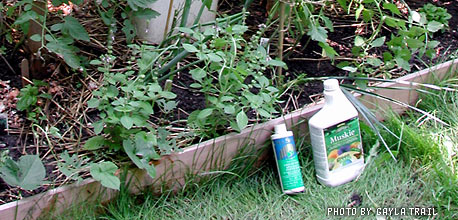 Guest post by Niki Jabbour
Guest post by Niki Jabbour
The real secret to growing healthy plants is to feed the earth. If you wish to garden organically, you must begin by considering your soil and what you can do to improve its health, fertility and boost its organic matter. The ideal garden soil is dark in colour, smells a bit sweet and is loaded with earthworms.
Soil Amenders
By working soil amendments such as compost and manure into the garden and feeding plants with organic fertilizers you will build the soil and replenish spent nutrients.
Carla Isnor of Halifax Seed says that a garden can only benefit from a generous seasonal application of organic matter. “It’s important to continue to improve your soil every year. Always put some of your annual gardening budget into the soil. A garden has to be built from the ground up.”
Access to good quality compost is closer than you think. You can easily recycle your kitchen scraps, grass clippings and leaves by turning them into compost, black gold for the garden.
Compost may be created in a free-formed pile or enclosed in some type of container. Either way your composting area should be located in a sunny spot that is out of sight, but conveniently close to the house.
Still don’t have time to compost? This fall gather leaves in garbage bags, poking several holes in the top and bottom of the bags. Add a few shovelfuls of grass clippings, garden soil and a sprinkle of water. Shake the bags well and check every few weeks to see if they have dried out. If so, add a bit of water and shake again. Come spring, open the bags to find rich, dark leaf compost, a wonderful soil amendment or mulch.
Manure has been a traditional soil amendment for many years and should be composted prior to incorporating it into the garden. Fresh manure is very high in nitrogen and may burn your plants.
For the urban gardener bagged manure is convenient to transport and easy to apply. Composted cow and sheep manure are readily available at most garden centers and allow a relatively quick and mess-free application of organic matter to the garden. Many nurseries are also offering bags of mushroom compost, an excellent soil additive that is rich in organic matter and nutrients. For those of us close to the ocean, seaweed is an invaluable and inexpensive slow release soil amendment. It contains over 60 minerals and several plant hormones.
Seaweed is also rich in micronutrients such as iron, copper, boron and zinc. Add freshly rinsed seaweed to your composter or till it into the vegetable garden in the autumn.
Organic Fertilizers
When it comes to feeding your plants, organic fertilizers offer a slow, steady release of nutrients that are derived from plants, animals or natural minerals. Because they break down more slowly than synthetic fertilizers, organics usually only need to be added once or twice per season. They also are less likely to burn plants or leach into groundwater.
Bonemeal and Bloodmeal are perhaps the best known organic fertilizers and available at virtually every garden center and nursery. Bonemeal is a rich source of phosphorous and calcium and can be worked into the flower and vegetable gardens in the spring and fall. As it stimulates root growth, Bonemeal should be sprinkled into the planting hole when transplanting annuals, perennials or shrubs.
Bloodmeal is a good source of nitrogen and releases its nutrients relatively quickly. It is ideal for encouraging lush green growth in leafy vegetables or foliage perennials.
Fish Meal and Kelp Meal are also good organic sources of nutrients. Fish Meal contains varying amounts of nitrogen, phosphorus and potassium, but has been known to attract cats, so if frisky felines are a problem in your garden, use with caution.
Kelp Meal is essentially seaweed in a granular form and offers most of the same benefits as fresh or composted seaweed. Besides using it in the garden, sprinkle it on the compost pile to speed up decomposition.
Niki Jabbour is an Ornamental Horticulturist and a writer from Halifax, Nova Scotia. Fertilized by sea breezes, her gardens are comprised of a colourful mixture of perennials, annuals, vegetables, herbs and flowering shrubs, with a few patches of clover and chickweed thrown in for good measure. A member of the Garden Writers Association of America, Niki is also the weekly gardening columnist for the Halifax Daily News and the Chester Clipper.